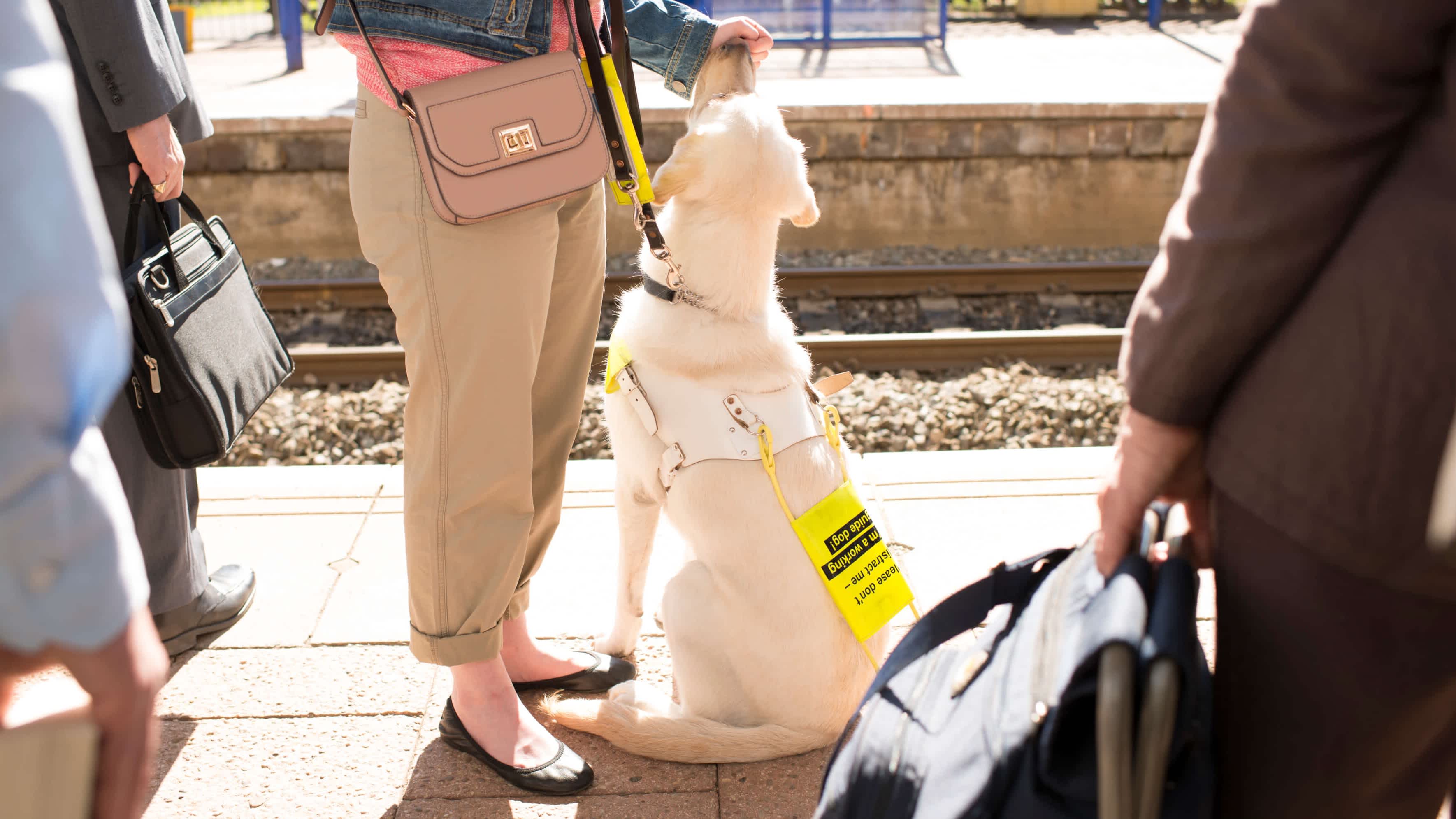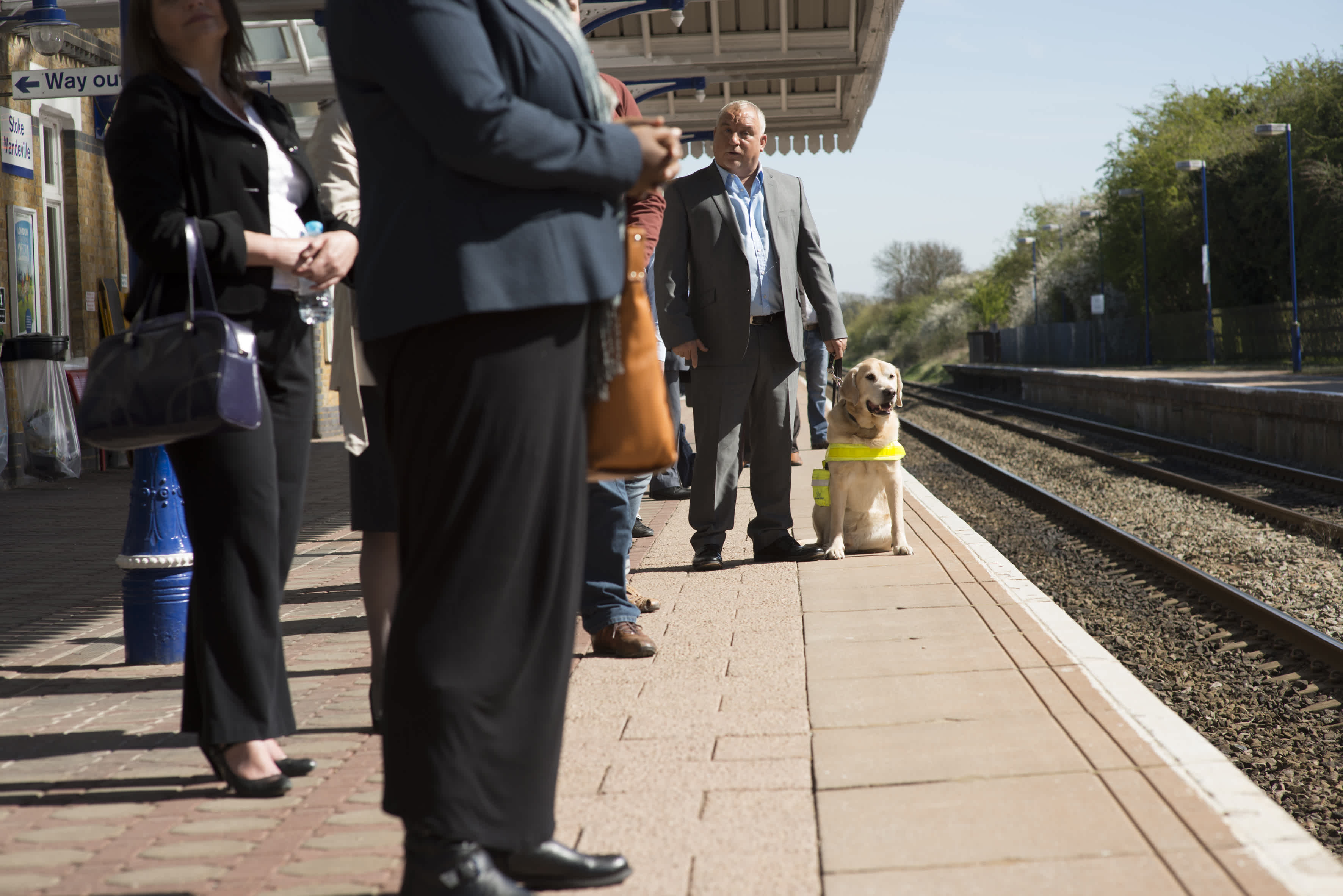A new Guide Dogs survey has revealed that more than three-quarters of adults with a visual impairment fear the proposed changes to close train ticket offices will leave them isolated and unable to use the train service confidently.
A poll of 200 people with a visual impairment found 85 per cent of respondents have a local train station with a staffed ticked office.
And 78 per cent claim that closing ticket offices would make accessing a train more difficult.
Earlier this month plans were announced which would see the closure of the majority of all ticket offices in England, with a public consultation due to end today.
Guide Dogs, alongside other charities, has called on the Government to rethink the proposals to close ticket offices.

"We need to make sure no-one is left behind. The plans to scrap ticket offices at stations across England will only add to the anxiety millions of visually impaired people already feel about using public transport. For many people with sight loss, trains are essential to get to work, appointments or see family.”
Eleanor Briggs, Head of Policy, Public Affairs and Campaigns at Guide Dogs

The majority of people polled (82 per cent) thought the Government should rethink the plan, for fear the plans could leave visually impaired people behind.
Visually impaired passengers (64 per cent) are deemed the group most likely to be negatively impacted by the proposals, followed by users with other disabilities (57 per cent).
And 45 per cent of those polled worry how those without access, or the inability to use, technology effectively will also struggle to access the rail network.
Sandra Morris from Devon is visually impaired and on the waiting list for a guide dog. She said: “I have recently used the train using the ticket office to buy my ticket for a five-hour journey. Without the ticket office I will not be able to buy my ticket without someone there to help me. I am visually impaired so cannot use self-service machines which are not accessible. This is just another piece of my independence being taken away.”
The public consultation announced earlier this month was originally open for just 21 days but has since been extended until September 1.


